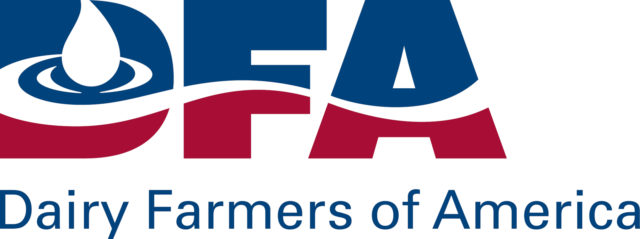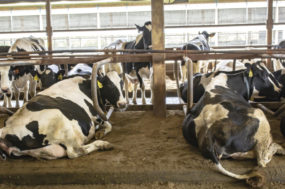- January retail dairy sales maintain strength
- Stronger December fluid sales help close out 2020
- Global Dairy Trade index continues upswing
- Things you might have missed
January retail dairy sales maintain strength
January retail dairy sales picked up where 2020 left off, according to a monthly update from the International Dairy Deli Bakery Association (IDDBA).
Overall, the value of January 2021 dairy sales value was up more than 10% compared to the pre-pandemic level in January 2019, with sales gains on both a volume and value basis in virtually all product categories.
Based on Information Resources Inc. (IRI) U.S. grocery store sales data, individual product category increases in January on a value and volume basis, respectively, were:
- Natural cheese sales: 15.3% (value); 12.4% (volume)
- Fluid milk: 7.2%; 3%
- Butter: 12.9%; 11.7%
Cream cheese and whipped toppings posted value and volume gains of about 20%. The sales value of process cheese and sour cream were each up about 10%, with volume increases at about 8% and 11%, respectively.
Sales of yogurt and cottage cheese were each up about 2% on volume and 3% and 2% on value, respectively.
According to IDDBA, January showed that everyday demand will hold well above year-ago levels as the COVID-19 virus and vaccine and the impact on consumer behavior and the economy dominate the headlines in the next few months. IRI shopper surveys indicate 44% of employed Americans expect to work from home at least once a week after the vaccine is widely distributed and restrictions are lifted. Nearly four in 10 (39%) shoppers expect the health crisis to last more than 12 more months.
Stronger December fluid sales help close out 2020
Sales volume increases in several categories in December helped steady 2020 U.S. sales of fluid milk products. Here’s an update on U.S fluid milk sales data from the USDA Agricultural Marketing Service:
-
Total sales: December sales of packaged fluid milk products totaled 4.01 billion pounds, up about 1.5% from the same month a year earlier. With December’s estimates, sales of all fluid milk products totaled 46.22 billion pounds, down just 0.1% compared to 2019.
-
Conventional products: Thanks to increases in whole, flavored whole and reduced-fat (2%) milk, December 2020 sales totaled 3.76 billion pounds, up 1.1% from a year earlier. That helped minimize the full-year sales decline (-0.7%), with sales estimated 43.34 billion pounds. Sales volume of whole and 2% milk ended 2020 higher than the year before.
- Organic products: With strong growth in whole and 2% milk categories, December sales totaled 253 million pounds, up 8.9% from a year earlier and the second-highest monthly total for the year. That boosted year-to-year 2020 sales of organic products to nearly 2.88 billion pounds, up 10.4% from 2019. Based on those estimates, organic represented more than 6.2% of total fluid product sales during 2020.
The U.S. figures represent consumption of fluid milk products in federal milk marketing order (FMMO) areas and California (now a part of the FMMO system), which account for approximately 92% of total fluid milk sales in the U.S. Sales outlets include food stores, convenience stores, warehouse stores/wholesale clubs, nonfood stores, schools, the food service industry and home delivery.
Global Dairy Trade index continues upswing
The index of Global Dairy Trade (GDT) dairy product prices rose 3% in the latest auction, held Feb. 16. A price summary of individual product categories follows:
- Skim milk powder was down 0.3% to $3,207 per metric ton (MT).
- Butter was up 2% to $5,129 per MT.
- Whole milk powder was up 4.3% to $3,615 per MT.
- Cheddar cheese was down 2.4% to $4,268 per MT.
The next GDT auction is March 2.
Things you might have missed
- With seemingly no progress through the FDA, Wisconsin dairy organizations are urging state legislation to prevent use of dairy terms in the labeling and marketing of imitation, plant-based products. Similar legislation covers meat products. Under federal interstate commerce laws, a number of other states would have to follow suit for the dairy measures to become law in Wisconsin.
- Borden has brought back its 2% reduced-fat “high protein milk” in stores across Texas and Louisiana. A 16-ounce glass contains 20 grams of protein, the equivalent of 22 cups of spinach.
- The COVID-19 pandemic has presented numerous challenges for U.S. dairy farmers committed to implementing Center for Disease Control and Prevention (CDC) recommended workforce best practices. The National Milk Producers Federation (NMPF) has produced “A dairy farmer’s guide to the COVID-19 vaccine rollout.” It includes a state-by-state look at vaccination priorities, a link to CDC guidance, and a listing of COVID-19 prevention and management resources for dairy farmers and cooperatives.

-
Dave Natzke
- Editor
- Progressive Dairy
- Email Dave Natzke







